Teaching idioms in 4th grade can be as easy as pie when you include hands-on activities to make learning engaging and relevant.
The goal in upper elementary for fourth and fifth grade is to identify and explain the meaning of common types of figurative language such as idioms.
To achieve this goal, get kids to learn to recognize idioms phrases and their meaning. Then, take it to the books and analyze its purpose in the stories they read.
In this post, you will find activities you can easily include in your lesson plan to teach idioms.
Table of Contents
Activity 1:Read Books To Teach Idioms
First, kick off your idiom lesson by reading picture books. Here is a suggestion for a fun read-aloud your kids will surely love!

The book There’s a Frog in My Throat! by Pat Street is excellent for introducing idioms and other figurative language types.
If your kids love animals, this book has 440 animal-related phrases to explore the world of figurative language.
Activity 2: Use Idiom Anchor Charts
As you read books, stop and point out the idiom phrases in the text. Introduce these sentences as idioms phrases and define what an idiom is.
You can do this by making a chart or using an idiom anchor chart. Continue to read the book and stop at various places to jot down idiom phrases the kids have identified.
An idea to extend this activity is to have an idiom scavenger hunt using books the kids are reading. Your kids can write down on sticky note idioms they have found in their books and place the note on the wall. You can even call this the idiom wall!
Activity 3: Complete An Idiom Project

After the kids can recognize idioms, now it’s time to step up a notch! In this next activity, kids learn the meaning of common idioms through a project.
In this idiom project for upper elementary, kids will create idioms using common household materials.
First, have kids research idioms phrases or provide a list of common idioms such as the one below. Guide them to pick two to three idiom phrases to complete their project.
Make sure there are no duplicates of the exact phrase so your class gets the maximum exposure to idioms.
Next, provide kids with common art materials such as construction paper, scissors, and glue to bring their idioms to life. In this part, they can get creative by identifying the nouns in the idiom phrases to make their craft.
Finally, they present their idiom project by giving the idioms’ meaning and using the phrase in a paragraph. You can modify this by instructing kids to write sentences instead.
Common Idioms for 4th Grade
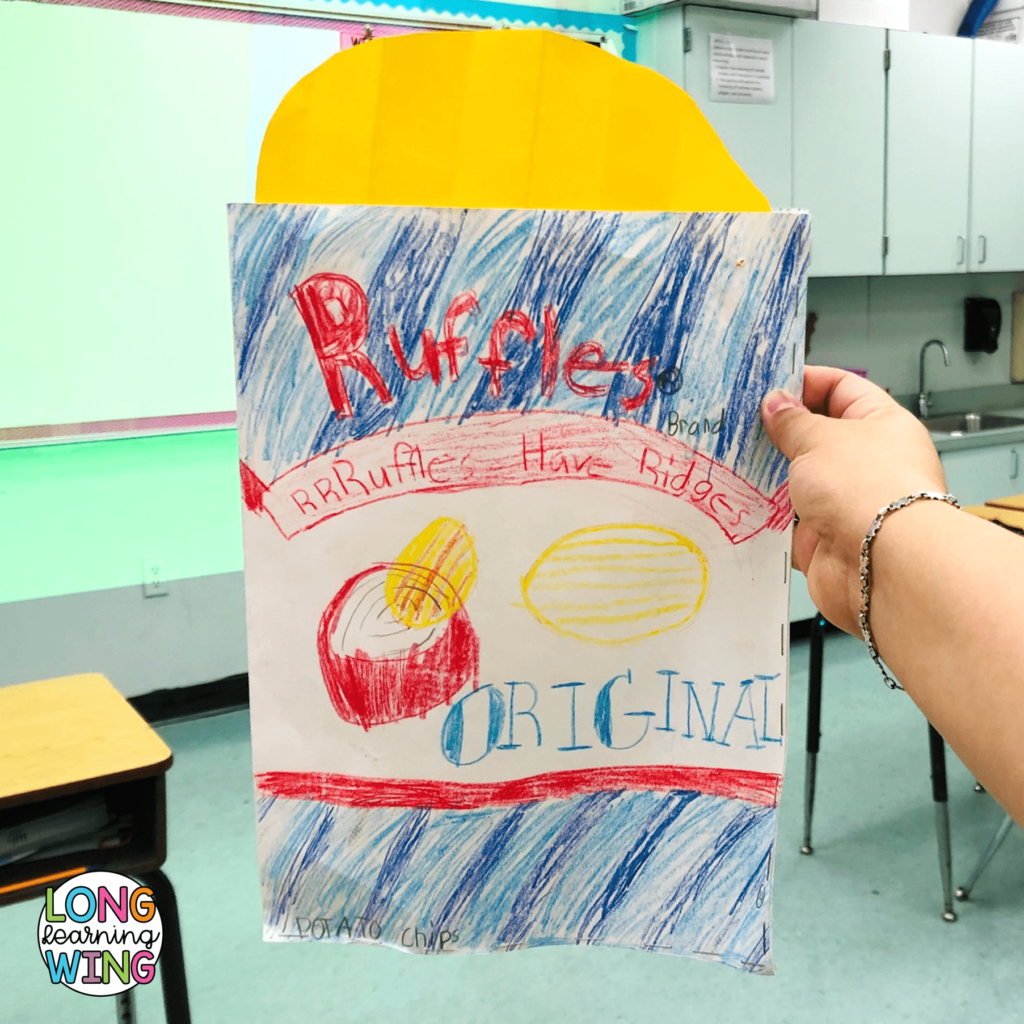
Here is a list of common idioms for kids to get this project started.
- Piece of cake – Something easy
- When pigs fly – To say something is impossible.
- Hit the nail in the head- Do or say something exactly right
- Smart cookie- Someone clever with good ideas
- Cool as a cucumber- Someone that is calm
- Speak your mind – Say what you feel.
- Cat got your tongue? – Why aren’t you talking?
- The icing on the cake – Something additional that turns good into great
- Hot potato- A controversial issue
- Let the cat out of the bag – Tell a secret.
- Have a change of heart – Changed your mind
- Once in a blue moon- Very rare
- Raining cats and dogs- Raining heavily
- Zip your lip – Stop talking
- Rocket science- Something difficult
- Red-handed- Doing something wrong
- Cost an arm and a leg- Something is expensive.
- Cut corners- Something is poorly done to save money.
Activity 4: Make An Idiom Exploding Book
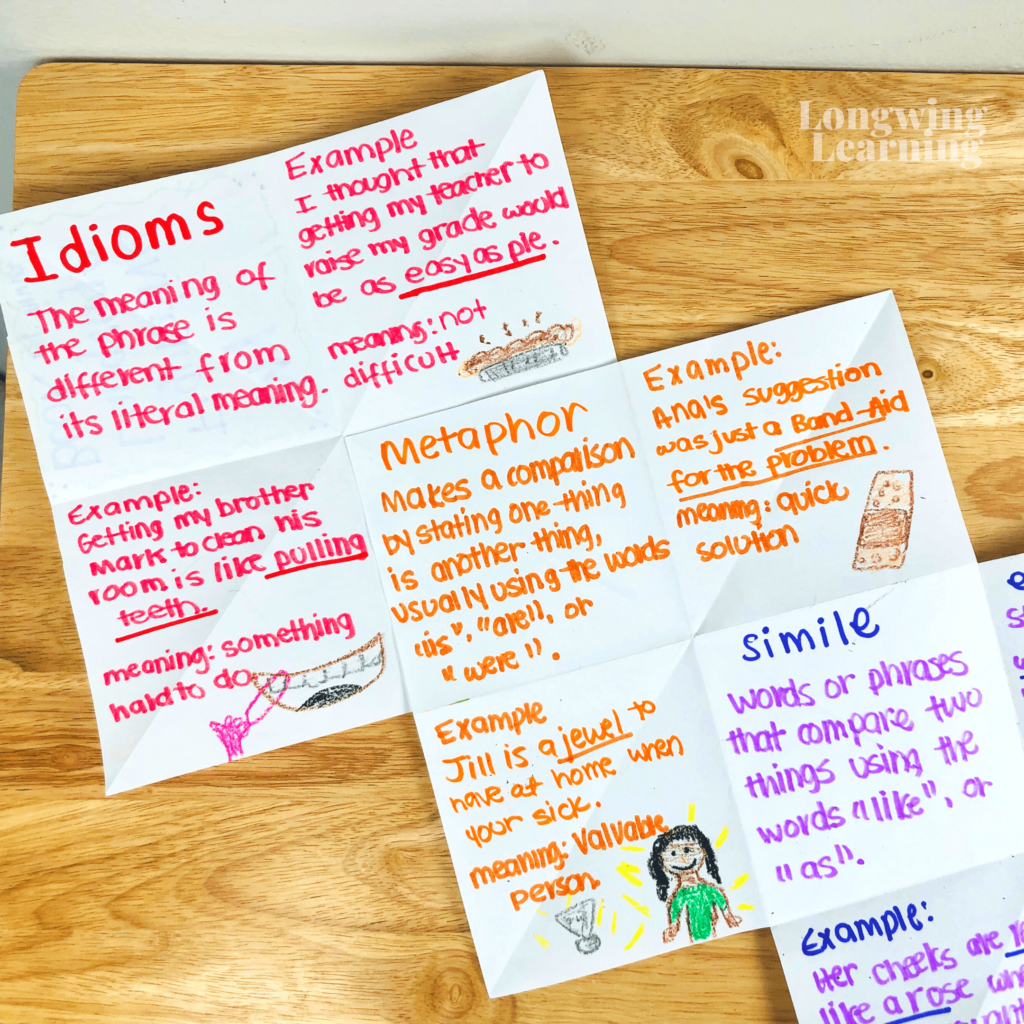
An alternative activity, if you are running short on time but still want to engage kids in learning about idioms, is doing an exploding book.
There is always a wow factor when the kids open and close these squash books.
The materials needed to make an exploding book or squash book are supplies kids commonly have, such as paper and scissors.
Click here to view the tutorial on how to make an exploding book. This step-by-step guide includes tons of pictures to walk you through creating an exploding book.
Activity 5: Use Questions Stem To Teach Idioms
After the idiom craft activity, now kids have a foundation to explain the purpose of idioms found in what they read. This activity is perfect to seemingly include test prep into your lesson plan without the drill and kill.
You can pick any text or book to answer the questions related to how the author uses idioms to enhance what they are reading.
The goal is for fourth and fifth graders to independently answer these questions in a center or as an independent reading activity. To achieve this task use the questions first as part of a whole group discussion.
During whole group instruction, use the opportunity to model how to find the meaning of idioms in the text utilizing details from the text to support its definition.
These types of questions are challenging for many upper elementary students to answer. Still, with continuous exposure, they will find them easier to answer.
Here are a set of various DOK level questions to include in your repertoire the next time you read a book with your kids.
- Identify an idiom in the text. Then determine the meaning of a word or phrase by using context clues.
- Read the idiom phrase selected. Then select details from the text that show the meaning of the idiom used in the text.
- From the text, identify an idiom the author included. Then, select details from the text that support that meaning.
- How does the idiom in the text enhance the message of the story?
- How does the idiom contribute to the author’s message?
- Select the details in the text that contribute to an explanation of an idiom found in the text.
These idiom questions match the level where the standard CCSS.ELA-LITERACY.L.4.5, or LAFS.4.L.3.5 gets assessed in the standardized testing.
Wrapping It Up
So, when you are ready to teach idioms or common core standards, 4.5 or LAFS.4.L.3.5 for my Florida teacher friends, these idiom activities will complement your lesson plan.







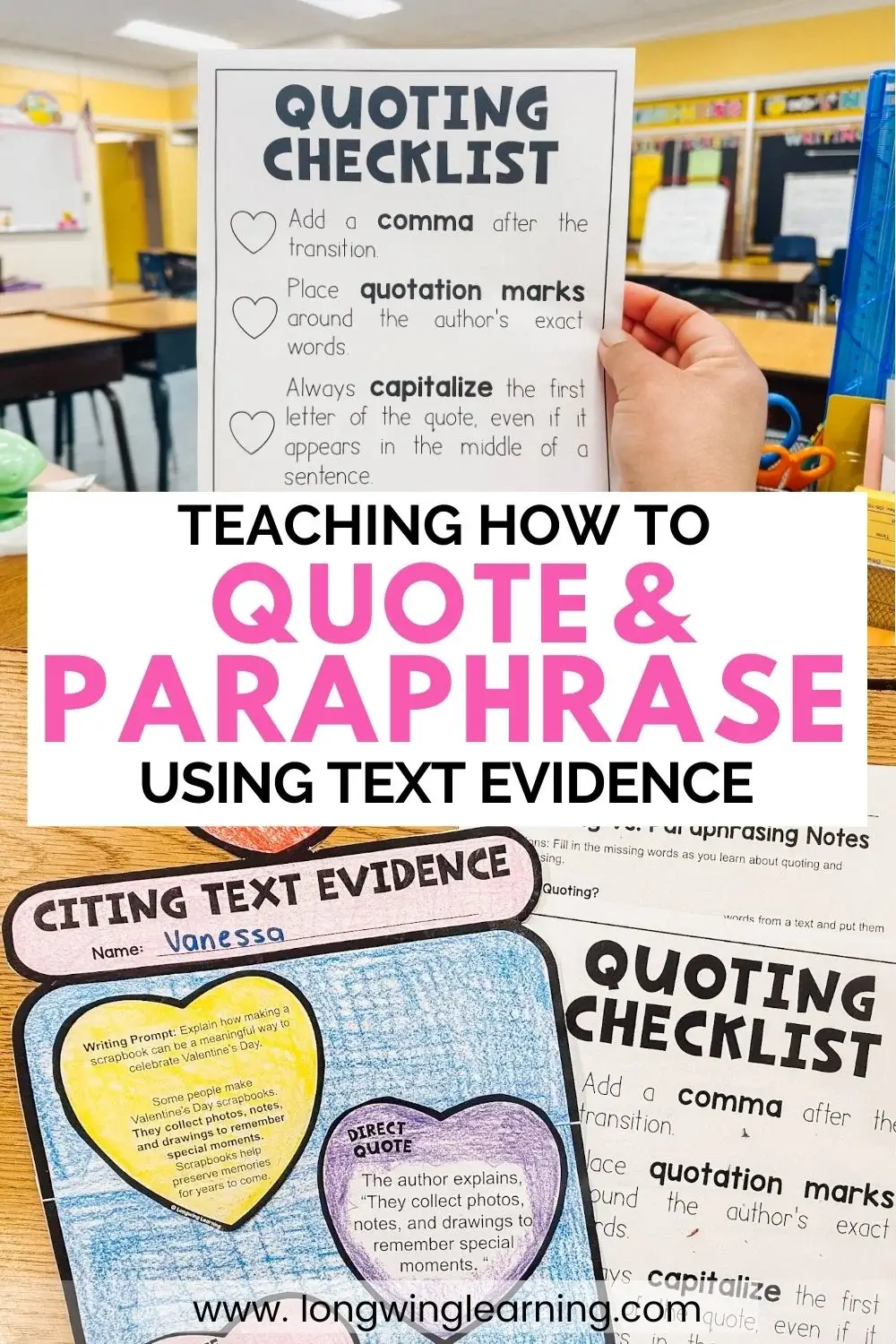

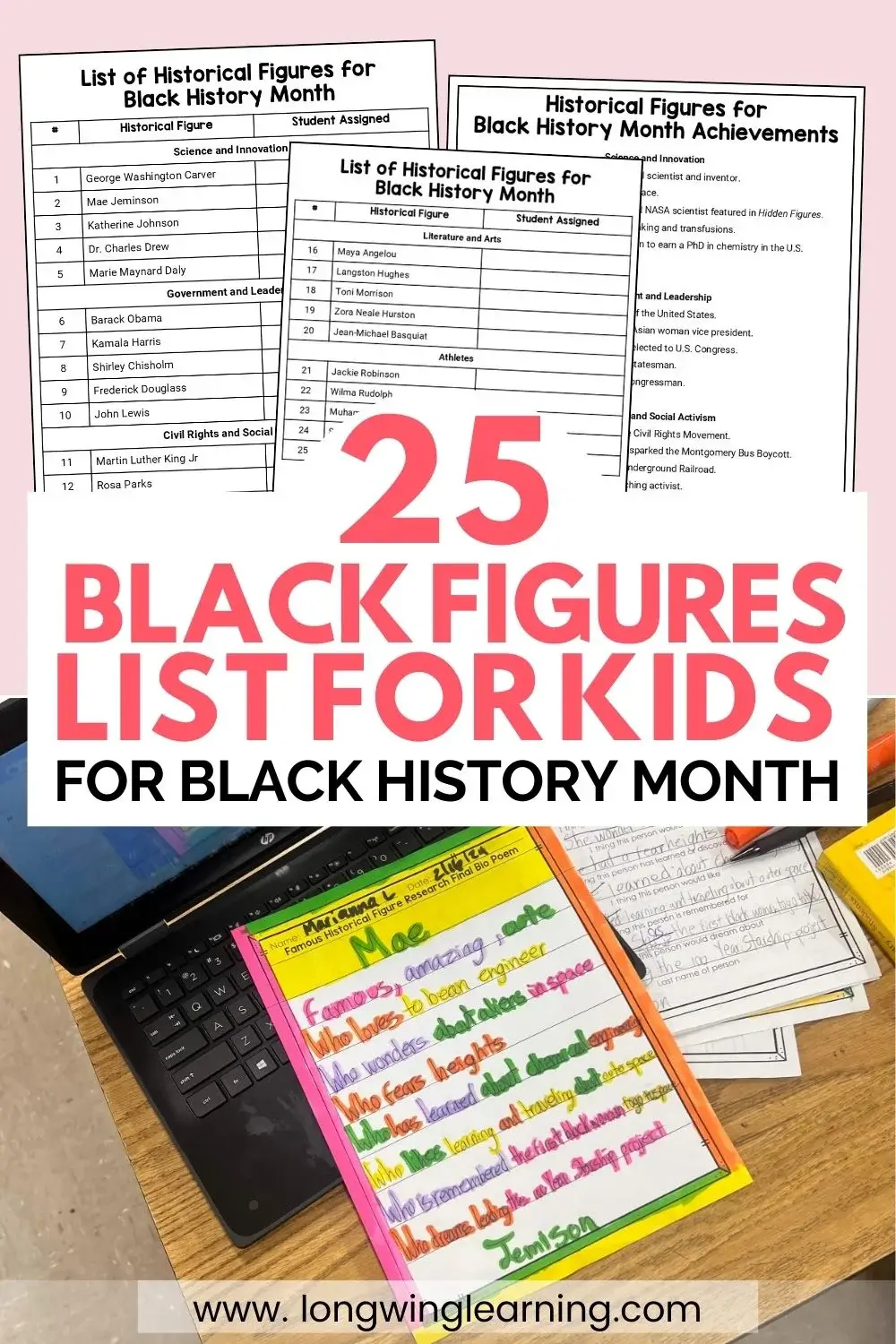



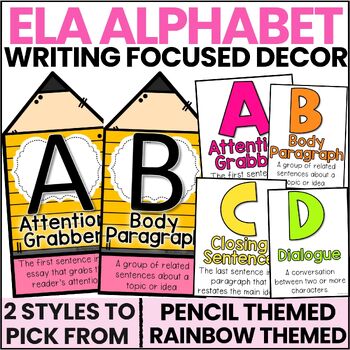




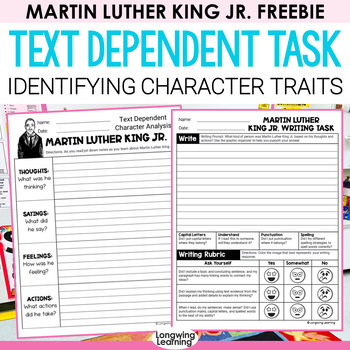


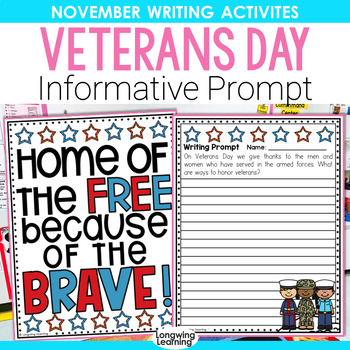

3 Responses